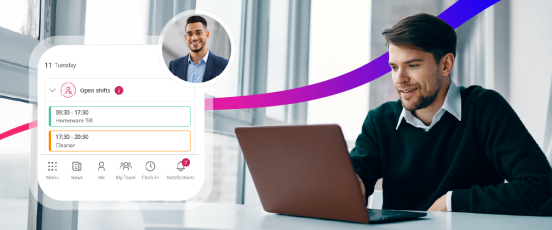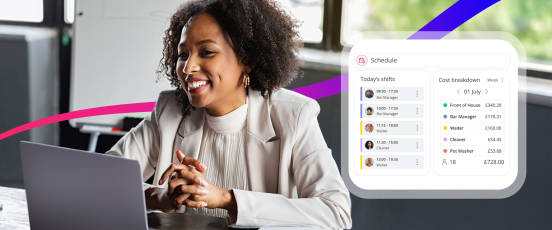Reverse mentoring and why you should consider it

What is reverse mentoring, and is it really the key to a stronger organisation?
The idea behind reverse mentoring is to get senior leaders (CEOs, owners, directors and higher-level management) to gain new insights by learning from others. ‘Others’ can mean a whole range of positions and roles within (and sometimes outside) the organisation, including:
- Junior or less experienced employees.
- People from different backgrounds and/or with different lived experiences.
- Someone with more experience with a specific technology or digital media topic.
This includes understanding different perspectives, developing new skills, and fostering inclusivity in the workplace. This format identifies skills gaps and learning opportunities for both participants in the mentoring relationship, extending beyond traditional mentoring.
Some people might resist participating in a reverse mentoring scheme, as they assume they have nothing to learn from someone younger than them. But there are lots of things to be learned, including:
- How to communicate inclusively across the workforce and with different demographics
- Employee and customer attitudes and what makes them think that way
- How they and the business are perceived by people who may also fit their customer profile
- Breaking out of comfort zones and challenging the status quo
- Learning about and understanding new technologies
A two-way street
Inevitably, reverse mentoring usually becomes something of a two-way street. The junior person will also broaden their knowledge, experience and horizons through interacting with the senior mentee. They both have something to gain from it.
Additionally, for younger or less experienced employees to know their opinions are valued within the senior ranks of their organisation is a big motivator. Being asked to share their experiences and views will strengthen their connection with the organisation.
Reverse mentoring also builds connections and solidifies workplace relationships. Connection, knowing they are valued, and social responsibility are essential for Millennials and Gen Z. Reverse mentoring can bridge the generation gap, fostering inclusion and diverse perspectives in a multigenerational workforce. Lucy Bisset, Director of Robert Walters North West UK, believes that “If we continue to embrace the lessons that each generation can offer – we will be well equipped to navigate the ever-evolving future of work.”
It also goes hand in hand with having a good equality, diversity and inclusion programme. Getting to understand and know how other groups and demographics perceive your business – and you individually – is incredibly valuable.
Additionally, reverse mentoring programmes can act as a catalyst to break down generational stereotypes that build up in work environments:
- Older workers don’t understand technology.
- Younger workers are lazy, lack commitment and don’t concentrate.
- Older workers have a conservative outlook and are set in their ways.
- Younger workers are consumed by social media.
Break down misconceptions and embrace difference
When different age groups interact regularly, misconceptions get broken down. People begin to understand what motivates others, resulting in better collaboration and partnerships throughout the company. The same applies to building relationships and understanding with clients, customers and suppliers outside the organisation.
Confronting and dismantling stereotypes we’ve mentally constructed can only be good. Echo chambers don’t generally create good learning environments, while exposure to and listening to different viewpoints do. Many a great idea came out of people with different ideas sitting down together.
Other benefits of reverse mentoring
- Increasing digital skills across the business, with a younger generation providing their perspective on trends and usage.
- Reverse mentoring builds bridges and fosters mutual learning similar to reciprocal mentoring.
- Provides an understanding across the workforce of different behaviours and attitudes.
- Younger generations working with more established and experienced professionals can help to build communication skills and styles.
Successful reverse mentoring
Right match
Finding the right match is essential for reverse mentoring. Businesses should prioritise diversity in mentor pairings across departments and personalities to cover various views. It is best to choose mentors with strong social skills and skilled candidates who are enthusiastic about mentorship, open to learning, and committed to the process.
Communication
Communication is key to successful mentoring; ensuring a balance is achieved and agreeing on communication ensures that mentoring proceeds smoothly without obstacles. The key is not to assume that everyone prefers the same method of communication. If they are both remote workers, this could include using HR software, messaging, video conferencing, or phone calls to stay in touch.
Set clear goals
Most mentoring relationships focus on the mentee's goals, making it hard for junior mentors in reverse mentoring to share their views on executive objectives. Clear goals enhance focus, enabling both parties to set individual objectives. Managers should encourage goal-setting to ease participants, and a standardised framework can help track progress.
Leveraging technology
Technology can play a crucial role, particularly in establishing reverse mentoring programs. Successful organisations use technology to meet the needs of their entire workforce and promote collaboration among different generations.
Our People First platform fosters connections among the workforce, enabling individuals to engage and collaborate effortlessly. Its social media-inspired design makes it easy to use and appealing to different generations. Leveraging this software can help to break down silos and create an inclusive environment where employees at all levels feel valued and heard and use reverse mentoring to bridge any gaps.
Is it time to consider a reverse mentoring programme in your organisation? View our checklist below.



